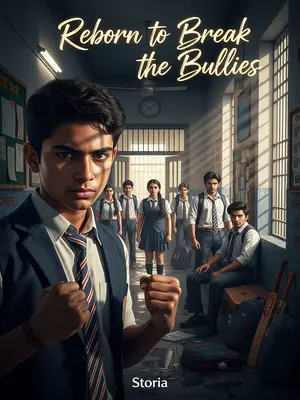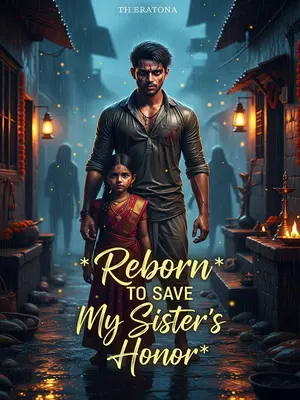Chapter 3: The Echoes of Two Lives
In my previous life, my cousin dropped out in his second year of higher secondary to deliver food, saying that even engineering graduates weren't worth much these days.
I still remember the day he announced it, standing with a proud grin outside the chai stall, plastic bag in hand. He argued with my Chacha ji, who, after a few minutes, just sighed and gave in. "Kya karein, zamana hi aisa ho gaya hai," he muttered. The other boys clapped Amit on the back, as if he’d won a battle.
After graduation, he said the salary was even less than what he earned delivering food for Swiggy.
He’d wave his phone in my face, showing off his daily earnings. "Arrey bhaiya, aap IT waale toh bas files hi ghiste ho. Main toh roz cash leke aata hoon!" The neighbourhood aunties, forever comparing sons, eyed him with new respect.
I tried to persuade him, telling him that a degree is more important than anything nowadays, but he wouldn't listen—nor would my Chacha ji and Chachi ji.
“Padhayi se kya hota hai, Rohan?” Amit would scoff, slurping chai. "Dekho na, Sharma ji ka beta B.Tech kar ke bhi ghar baitha hai." My words were lost in the clatter of teacups and the smell of frying pakoras. Even my parents shrugged, unsure. Elders just shook their heads, muttering about "naukris ki kami" during evening park walks.
Sure enough, in his first month delivering food, he made over twenty thousand rupees, and in the second month, even reached thirty thousand.
Amit's swagger grew as his phone wallet swelled. He bought new shoes, treated the family to sweets from Gupta Mishtan Bhandar, and upgraded his phone. Chacha ji boasted about Amit’s 'business sense' to the neighbours. "Aaj ke zamaane mein, yeh hi chal sakta hai," he’d say.
At that time, I had just graduated from college, finally found a job, and my salary wasn't even fifteen thousand.
I remember standing at the bus stop, clutching my thin offer letter, feeling small. At family gatherings, my achievements faded into the background. Everyone asked, "Beta, Swiggy join karoge kya?" My mother tried to defend me, but I saw the doubt in her eyes.
From then on, my cousin Amit and I became their classic example of "studying is not as good as delivering food."
His photo, in a bright orange delivery shirt, hung next to my graduation certificate. Relatives pointed at him and said, "Dekho, practical soch ka result hai." My degree, gathering dust, was forgotten.
But what they didn't know was that three years later, I had changed jobs three times, and my salary increased with each move.
I learned to play the corporate game—jumping companies, negotiating hard, picking up evening certifications. With each new job, my confidence grew. The same family that doubted me now asked for help with bank forms.
By then, my monthly salary was already seventy thousand.
That day, I took my parents to a fancy restaurant, and for the first time, saw pride flicker in my mother’s eyes. My father grumbled about the price of dal makhani, but finished every bite.
But my cousin, due to the high intensity of running orders every day, sometimes had fluid buildup in his knees three times a month, and walked with a limp.
Amit’s energy began to fade. He started limping, complaining about his knees, but kept working. Chachi ji massaged his legs with mustard oil every night. The neighbours who once praised him now whispered about his health.
That time, he jumped a red light at a crossing and collided with a lorry, resulting in a serious accident.
No one saw it coming. The news spread fast—by the time I got the call, half the mohalla already knew. Someone said, "Lucknow ka traffic hi aisa hai." Others blamed Amit for not being careful. The scene replayed in my mind, again and again.
In my previous life, after receiving my Chacha ji and Chachi ji's call, I rushed over immediately.
I remember running through the crowded hospital corridors, clutching a bag of fruits and a change of clothes, my mind whirling. The smell of antiseptic, the cries of other families, flickering tube lights—all blurred together.
The doctor said the injuries were very severe, amputation was certain, and a quick decision was needed, otherwise the other leg would probably be lost too.
I remember the doctor’s words: "Yahan decide nahi kiya toh patient ki zindagi khatre mein hai." His tone was kind but urgent. I felt the family’s fate on my shoulders.
My Chacha ji and Chachi ji cried on the phone and couldn't make a decision.
Their voices were muffled, as if from the bottom of a well. "Rohan, tu samajh, hum se toh nahi hoga."
My cousin cried and begged for conservative treatment.
"Bhaiya, please, kuch kar lo na. Main theek ho jaunga. Mujhe ghar jana hai, hospital nahi rehna," he pleaded. His eyes, always full of mischief, were wild with fear.
The doctor urged me on my end, so I tried to persuade them to listen to the doctor.
"Chacha ji, please, doctor ki baat maaniye. Abhi decide nahi kiya toh aur bhi nuksan ho sakta hai." My own heart pounded as I tried to convince them, feeling the walls closing in.
My Chacha ji and Chachi ji hesitated until they couldn't any longer, then finally agreed to the amputation.
After hours of debate and sobbing, they finally relented. The entire ward was tense, every relative waiting to see what would happen next.
But they couldn't make it in time, so they had me sign the papers for them.
My hands shook as I scrawled my signature. I whispered a silent prayer, hoping I was doing the right thing. The nurse patted my back, giving me a kind smile.
Who knew, when my cousin woke up and found his right leg gone, he screamed and smashed everything in the ward.
The sound of breaking glass, his raw scream, nurses running in—those moments are seared into my memory. His grief drowned out every other sound.
He even cursed me for not wanting him to do well, for wanting to ruin him.
His words felt like daggers. “Tujhe toh bas main barbaad ho jaun, yahi chahiye tha na?” He wouldn’t even look at me.
By then my Chacha ji and Chachi ji had already arrived, but didn't say a word, and forced me to take all the blame.
They avoided my eyes. In front of everyone—doctors, nurses, distant relatives—they let the blame pile onto me. My mother wept quietly in the corner.
Later, they said there was no one to take care of the buffaloes and the fields back home and had to rush back, so they shoved my cousin into my new 2BHK flat and made me take care of him.
It felt like they were washing their hands of responsibility. "Beta, hum toh majboor hain," they said, thrusting a battered suitcase into my hands. The smell of cow dung and earth lingered on the bag.
After that, my cousin refused to leave, saying I had to be responsible.
He made himself at home. He demanded tea, complained about my cooking, and called his parents daily to update them on my 'failures.'
He even pushed me out the window from the 25th floor of the wedding hotel, and didn't spare my fiancée either.
That moment, I felt a final, sharp betrayal. For a second, as the air whooshed past, I saw Amit’s face—twisted with pain and rage. My fiancée, always gentle, was caught in a storm that wasn’t hers.







